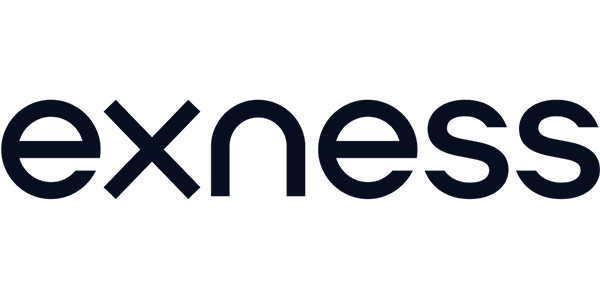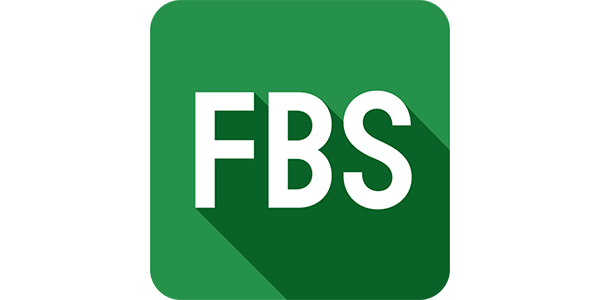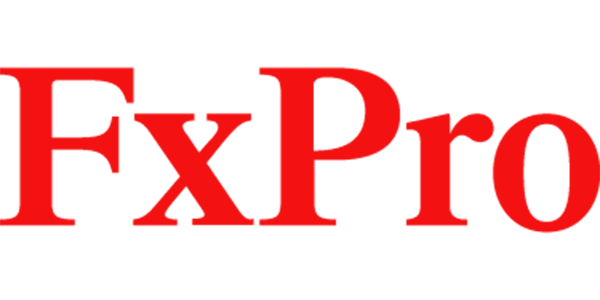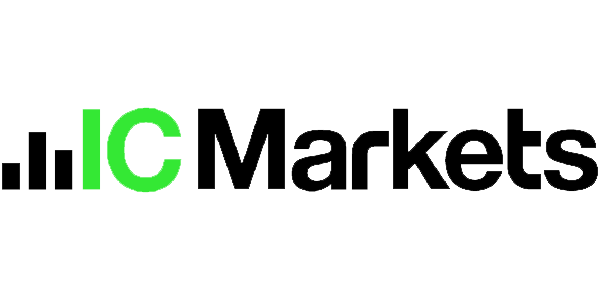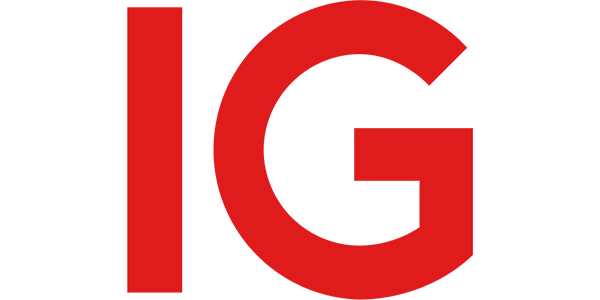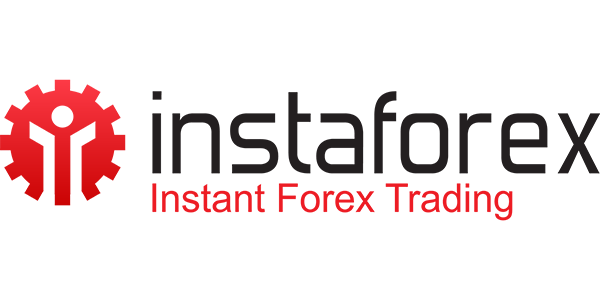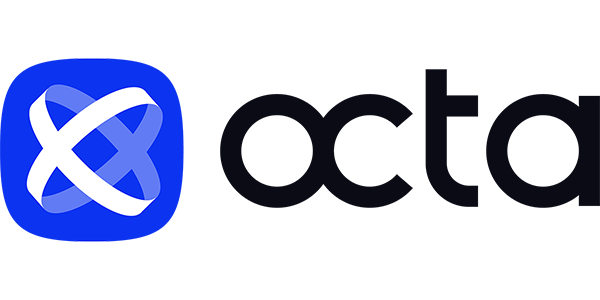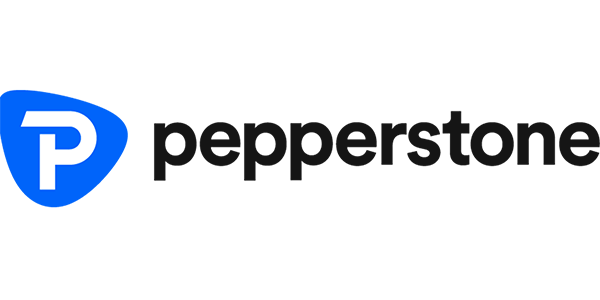Domestically, the Qatar Stock Exchange (QSE) plays a central role in capital markets in Qatar, offering liquidity and exposure to local sectors such as energy, banking, and infrastructure. As Qatari traders increasingly seek exposure beyond the domestic market, platforms that offer access to global equities, forex, commodities, and derivatives are in high demand.
List of The Best Trading Platform for Trading
Here’s a quick comparison of the best trading platforms based on their compatibility and market access.
| Best For | Commision | Min Dep | Leverage | Platforms | ||
|---|---|---|---|---|---|---|
| Beginners, Professionals, Active Traders | From $6 per lot | $100 | Up to 1:500 | MetaTrader 4 MetaTrader 5 Ctrader | ||
| Beginners, Active Traders | No commission (for Standard accounts) | $5 | Up to 1:1000 | MetaTrader 4 MetaTrader 5 | ||
| Beginners, Professionals, Active Traders | From $5 per lot | $100 | Up to 1:400 | AvaTradeGo MetaTrader 4 MetaTrader 5 | ||
| Beginners, Copy Traders | No commission | $200 | Up to 1:30 (1:5 for crypto) | eToro Platform MT4 MT5 | ||
| Beginners, Active Traders, Scalpers | No commission | $1 | Up to 1:2000 | MT4 MT5 WebTrader Exness Trade App | ||
| Beginners, Professionals, Active Traders | No commission (for Standard accounts) | $1 | Up to 1:3000 | MetaTrader 4 MetaTrader 5 | ||
| Beginners, Active Traders, Scalpers | From $5 per lot | $100 | Up to 1:50 | MetaTrader 4 FOREX.com Web Trader | ||
| Beginners, Active Traders, Scalpers | From $4 per lot | $100 | Up to 1:500 | MetaTrader 4 MetaTrader 5 cTrader FxProEdge | ||
| Beginners, Active Traders, Scalpers | No commission | $200 | Up to 1:1000 | MetaTrader 4 MetaTrader 5 WebTrader | ||
| Beginners, Professionals, Active Traders | From $6 per lot | $5 | Up to 1:1000 | MetaTrader 4 MetaTrader 5 Web Terminal Multi Terminal | ||
| Professionals, Active Traders, Scalpers | From $3 per lot | $200 | Up to 1:500 | MetaTrader 4 MetaTrader 5 cTrader | ||
| Beginners, Active Traders | No commission | $0 | Up to 1:200 | MetaTrader 4 ProRealTime WebTrader | ||
| Beginners, Active Traders, Proffesionals | No commission | $1 | Up to 1:1000 | MetaTrader 4 MetaTrader 5 | ||
| Beginners, Professionals | No commission on standard accounts | $10 | Up to 1:1000 | IQ Option Platform Mobile App | ||
| Active Traders, Beginners | No commission | $1 | Up to 1:50 | MetaTrader 4 OANDA Platform | ||
| Beginners, Active Traders, Scalpers | No commission on standard accounts | $25 | Up to 1:1000 | MetaTrader 4 MetaTrader 5 OctaTrader | ||
| Beginners, Active Traders, Scalpers | No commission | $200 | Up to 1:500 | MetaTrader 4 MetaTrader 5 cTrader | ||
| Active Traders, Scalpers | No commission | $10 | Up to 1:2000 | MT4 MT5 R StocksTrader | ||
| Inexperienced and Active Traders, Scalpers | From $2 per lot | $100 | Up to 1:500 | MetaTrader 4 MetaTrader 5 | ||
| Beginners, Proffesionals | No commission | $5 | Up to 1:1000 | MetaTrader 4 MetaTrader 5 |
Qatar Market Overview
Qatar’s financial markets are growing in sophistication, bolstered by its energy wealth, strategic economic diversification efforts, and institutional reforms. Below is a snapshot of the key components and trends shaping the market environment that a trader or investor should know.
Economic & Structural Highlights
- Qatar remains heavily reliant on liquefied natural gas (LNG) and energy exports, which drive much of state revenue and foreign exchange inflows.
- Under the Qatar National Vision 2030, the government is pushing to diversify its economy into finance, technology, infrastructure, and services.
- The Qatar Financial Centre (QFC) is a major enabler of this transition. It provides a legal, regulatory, and business environment geared toward international firms. The QFC operates under English common law and is regulated by the QFC Regulatory Authority (QFCRA).
- The sovereign wealth fund, the Qatar Investment Authority (QIA), manages substantial assets domestically and abroad—serving both as a stabilizing force and an active player in global capital markets.
Capital Markets & Reform Initiatives
- The Qatar Stock Exchange (QSE) is the primary local exchange, operating since the 1990s (formerly the Doha Securities Market). It hosts many leading Qatari firms, especially in banking, energy, and real estate sectors.
- In recent years, Qatar has introduced market reforms aimed at enhancing transparency, liquidity, and investor access. These include listing reviews, upgrading market infrastructure, and enabling new instruments.
- Foreign investors have had access to Qatari markets for some time; HSBC notes that its Qatar operations were among the first to provide foreign clients with trading capabilities and local custody services.
Banking, Fintech & Institutional Foundations
- Qatar’s banking sector is a backbone of the financial system, with prominent institutions such as Qatar National Bank (QNB), which is among the largest in the region by assets and reach.
- The fintech ecosystem is receiving increasing support, with the government integrating innovation into its economic diversification plans. The integration of digital banking, payment solutions, and financial technology is a growing priority.
Market Risks & Considerations
- As a small-open economy, Qatar is vulnerable to commodity price shocks, particularly fluctuations in global gas and energy demand.
- Currency and monetary policy are influenced by external interest rate cycles (especially given the peg to the US dollar).
- Market reforms are ongoing; sometimes regulatory adjustment lags peer financial centers, which can mean transitional frictions for new instruments or foreign trading rules.
Outlook for Traders & Investors
- The ongoing reform of capital markets, combined with Qatar’s ambition to position itself as a regional financial hub, suggests rising opportunity in equities, bonds, derivatives, and cross-border exposure.
- For those interested in trading platforms or brokerage services, the existence of QFC and regulatory reform offers better legal certainty for international firms and potential for more technically advanced platforms to enter and operate.
- However, as in many emerging markets, execution quality, liquidity on local stocks, and regulatory clarity are critical considerations when participating in Qatari markets.
Criteria for Choosing a Trading Platform in Qatar
Qatar’s financial market is expanding, with both local brokerage services (through the Qatar Stock Exchange and banks) and international brokers available to residents. Selecting the right platform depends on balancing security, costs, and usability.
1. Regulation and Compliance
- Choose brokers regulated by reputable authorities such as the Qatar Financial Centre Regulatory Authority (QFCRA), Qatar Financial Markets Authority (QFMA), or Tier-1 international regulators (FCA, ASIC, CySEC, MAS).
- Ensure the broker offers swap-free (Islamic) accounts, which comply with Shariah principles—important for many Qatari investors.
2. Fees and Spreads
- Review commission structures and spreads on major products (stocks, forex, CFDs).
- Check for hidden costs, such as overnight fees, inactivity fees, or withdrawal charges.
- Compare QSE-linked brokers’ fees with international platforms to see which is more cost-efficient.
3. Order Execution and Reliability
- Prioritize platforms with fast execution and low slippage, especially if trading forex or CFDs.
- Look for Direct Market Access (DMA) or ECN/STP accounts if you are an active or professional trader.
- Ensure servers are stable and ideally have regional infrastructure to reduce latency for Qatari users.
4. Platform Technology and Mobile Apps
- Desktop, web, and mobile access should be seamless, with full functionality across devices.
- Popular platforms: MetaTrader 4 (MT4), MetaTrader 5 (MT5), SaxoTraderGO, Interactive Brokers TWS, or locally integrated apps like CB Alpha Trader from Commercial Bank of Qatar.
- Check features like advanced charting, customizable dashboards, risk-management tools, and one-click trading.
5. Funding and Withdrawals
- Ensure support for local bank transfers (QNB, CBQ, Doha Bank, etc.), plus global methods like Visa/Mastercard and e-wallets.
- Some international brokers also accept cryptocurrency deposits, but verify security and compliance first.
- Speed of withdrawals is critical—prefer brokers offering same-day or next-day processing.
6. Customer Support
- Brokers serving Qatar should provide Arabic and English support, ideally available 24/5 or 24/7.
- Check if support is responsive through live chat, phone, and email.
- Locally linked brokers may also offer branch assistance for account setup and compliance.
7. Security and Transparency
- Platforms should provide two-factor authentication (2FA), data encryption, and clear custody arrangements.
- Confirm whether your funds are held in segregated accounts and under which jurisdiction.
- Transparency on fees, policies, and risk disclosures is a must.
Popular Trading Instruments in Qatar
Qatari traders (and residents of Qatar) commonly use both local and international platforms, giving access to a broad spectrum of financial instruments. Here’s a breakdown of the most accessible and attractive instruments:
Equities & Stocks
- Domestic stocks listed on the Qatar Stock Exchange (QSE) are the principal equity instruments for local investors.
- Many platforms also provide access to global equities (U.S., Europe, Asia) via international brokers.
- Some brokers allow trading of fractional shares or partial ownership in large-cap foreign stocks.
Exchange-Traded Funds (ETFs) & Index Funds
- ETFs tracking major indices (U.S., Europe, Asia) and sector-specific funds are popular for diversification.
- Some platforms bundle ETFs as part of stock offerings.
Forex / Currency Pairs
- Major, minor, and exotic currency pairs (e.g. USD/EUR, GBP/JPY) are widely traded via international forex brokers.
- The Qatari Riyal (QAR) occasionally features as the base or quote currency in certain pairs for regional brokers.
- While forex trading is primarily executed via offshore brokers, exchange-traded currency derivatives may come under QFMA oversight. (TradingBrokers.com)
Commodities & Precious Metals
- Common commodities include oil, gold, silver, and energy products, especially relevant given Qatar’s strong energy sector.
- Traders also access commodity futures or CFDs on commodity indices.
Derivatives: Futures & Options
- Qatar has been developing regulatory frameworks to support derivatives trading, and the QFC’s Derivatives Markets & Exchanges Rules (DMEX) introduced in 2023 aim to enable futures and options on QSE stocks and indices.
- However, the full launch of a derivatives exchange with central clearing is ongoing.
Key Considerations for Qatari Traders
| Factor | Why It Matters in Qatar |
|---|---|
| Liquidity & Spread | High liquidity means tighter spreads, which is crucial for cost effectiveness |
| Energy / Oil Exposure | Qatar’s economy is closely tied to global oil/energy markets |
| Regulation & Broker Support | Some instruments (especially crypto CFDs) may have regulatory restrictions or limited support |
| Currency Risk | Since QAR is pegged to USD, trading in USD-based instruments reduces currency volatility risk |
| Diversification | Relying on a single instrument class is risky |
Top Platforms Accessible to Traders in Qatar
While Qatar does not currently impose strict local licensing for forex brokers, many Qatari traders use globally regulated platforms that accept Qatar-based clients. Below are prominent platforms known to be accessible (or recommended) for traders in Qatar. Always confirm whether they accept Qatari residents and support QAR or regional funding.
| Platform / Broker | Strengths / Why It’s Popular in Qatar | Things to Verify |
|---|---|---|
| Interactive Brokers | Ranked #1 among “full-service brokers in Qatar” by BrokerChooser for 2025. Offers a wide global asset reach, strong safety, and advanced tools. | Ensure that the specific entity servicing you accepts Qatari clients and supports local payment methods. |
| Saxo | Also highly rated in Qatar’s full-service broker lists. Has multi-asset access and good research/analytics. | Check whether Saxo’s platforms (GO/PRO) permit QAR deposits or Arabic language support. |
| Exness | Frequently cited in broker lists serving Qatar (e.g. ChooseABroker) for accessible services and client support. | Look into spreads, leverage, and withdrawal processing times for Qatari customers. |
| XTB | Listed among international trading platforms recommended for Qatar in stock broker lists. | Confirm CFD/forex availability, commission structure, and Arabic support. |
| FP Markets, Pepperstone, XM, AvaTrade | These brokers often appear in “Best Forex Brokers Qatar” lists. E.g. IamForexTrader includes AvaTrade, FP Markets, Exness, XM among top picks. | Verify all fees, minimum deposits, and whether they permit Qatari account registration. |
Using These Platforms as a Qatari Trader
- Test with small amounts first: before transferring large funds, verify deposit/withdrawal flows from Qatar (bank, card, e-wallet).
- Check swap-free / Islamic accounts: many Qatari traders prefer brokers that offer Sharia-compliant accounts.
- Examine regional latency and server locations: some brokers offer servers closer to the Middle East to reduce lag.
- Verify regulation and disclosures: even if a broker is popular, check their license(s), audited reports, and whether they are “alerted” or blacklisted in any jurisdiction.
- Local support & language: platforms with Arabic support or regional customer service are more convenient for many Qatari users.
Advantages of Trading for Qatar Residents
Qatar’s financial sector is evolving quickly, and online trading has become an attractive option for both beginners and experienced investors. Modern platforms provide access to international markets while addressing the specific needs of Qatari traders.
Global Market Access
- Online platforms allow Qatar residents to trade not only on the Qatar Stock Exchange (QSE) but also in international equities, forex, commodities, indices, and cryptocurrencies.
- This diversification helps investors reduce dependence on the domestic market, which is heavily weighted toward energy and banking sectors.
Flexibility and Convenience
- With desktop, web, and mobile apps, trading can be done from anywhere in Doha or abroad.
- Online platforms support real-time trading, portfolio management, and order execution 24/5 across global markets.
Lower Costs and Competitive Spreads
- Compared to traditional brokerage services, many online brokers offer tight spreads, low commissions, and transparent fee structures.
- Promotions and regional offers often benefit Gulf clients, making global trading more affordable.
Islamic (Swap-Free) Accounts
- Many international brokers provide Sharia-compliant accounts, ensuring no overnight interest (swap fees).
- This feature makes online trading accessible to investors following Islamic finance principles.
Advanced Analytics and Tools
- Platforms like MT4, MT5, or SaxoTraderGO come with technical indicators, charting tools, economic calendars, and risk management features.
- Access to research reports and trading signals helps both novice and professional traders make informed decisions.
Easy Funding and Withdrawals
- Brokers serving Qatar typically support local bank transfers (QNB, CBQ, Doha Bank, etc.), as well as Visa/Mastercard, Skrill, Neteller, and crypto wallets.
- Same-day or next-day withdrawals are common with reputable brokers.
Education and Support
- Leading brokers offer webinars, tutorials, demo accounts, and Arabic/English customer service aligned with Gulf time zones.
- This makes onboarding easier for new traders and supports continuous learning.
Tips for Qatari Traders
Trading online from Qatar offers access to global opportunities, but success depends on making informed choices and practicing strong risk management. Here are key tips for Qatari investors:
1. Choose Regulated Brokers
- Always verify that your broker is licensed by a Tier-1 regulator (FCA, ASIC, CySEC, etc.) or locally recognized through the Qatar Financial Centre (QFC).
- Ensure they offer Islamic (swap-free) accounts to stay compliant with Sharia principles.
2. Start with a Demo Account
- Use demo accounts to practice strategies, test order execution, and explore platform features before committing real funds.
- This is especially important if you are new to forex, CFDs, or crypto.
3. Test Deposits and Withdrawals
- Begin with a small deposit to confirm that local bank transfers, cards, or e-wallets work smoothly from Qatar.
- Prefer brokers offering same-day or next-day withdrawal processing.
4. Match Platform to Your Trading Style
- Intraday traders: need fast execution, tight spreads, and advanced charting (e.g., Pepperstone, Exness).
- Long-term investors: may prefer full-service brokers with research, diversified instruments, and custody options (e.g., Interactive Brokers, Saxo).
- Beginner traders: should focus on intuitive platforms with strong education and support (e.g., XM, XTB).
5. Manage Risk Carefully
- Never risk more than 1–2% of your trading capital per position.
- Use stop-loss orders and appropriate position sizing.
- Be cautious with high leverage; stick to moderate levels (1:50–1:100) until experienced.
6. Leverage Educational Resources
- Take advantage of free webinars, tutorials, and research reports many brokers provide.
- Follow news on oil, LNG, and regional geopolitics, as these factors strongly affect markets relevant to Qatar.
7. Stay Aware of Local Rules
- The Qatar Financial Markets Authority (QFMA) and QFC Regulatory Authority (QFCRA) continue to expand oversight of securities and derivatives.
- Keep updated on changes that may affect taxation, reporting, or permitted instruments.
Conclusion
Qatar’s traders enjoy a unique position in the global markets thanks to the country’s stable currency peg to the USD, strong banking system, and strategic role in global energy exports. However, because forex and CFD trading is not heavily regulated locally, choosing the right international broker becomes essential. The best trading platform in Qatar should offer USD account funding, Sharia-compliant options, reliable execution, and global diversification tools. Traders should always test withdrawals, verify regulatory oversight, and manage leverage carefully.
FAQs
Is online trading legal in Qatar?
Yes. Online trading in stocks, forex, and other instruments is legal in Qatar. Activities are regulated by the Qatar Financial Markets Authority (QFMA) and the Qatar Financial Centre Regulatory Authority (QFCRA).





